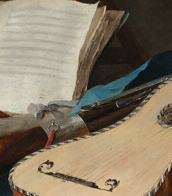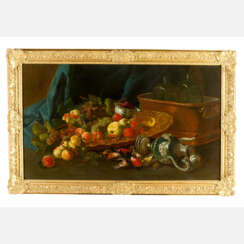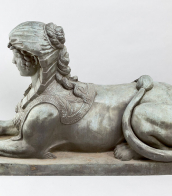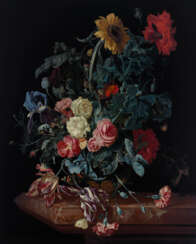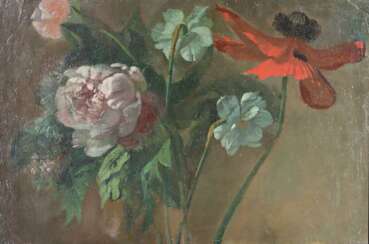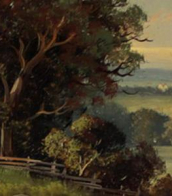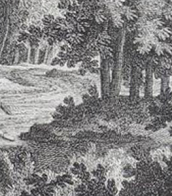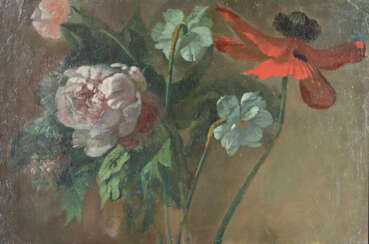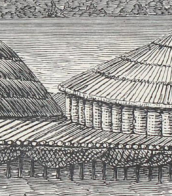willem van aelst (1627 - 1683)

Willem van Aelst was a Dutch Golden Age artist renowned for his exquisite still-life paintings featuring flowers, game, and various objects that exemplify the era's opulent lifestyles. Born into a family of city magistrates in Delft, Willem van Aelst trained under his uncle, Evert van Aelst, and became a master in the Guild of Saint Luke at Delft. His career spanned various European cities, including a significant period in Florence as court painter to Ferdinando II de' Medici, Grand Duke of Tuscany, where he was awarded a gold chain and medal for his artistic prowess. The artist signed his paintings with the nickname "Vogelverschrikker" (bird scarecrow), which later became his pseudonym.
Willem van Aelst's contributions to still-life painting were significant, with his works being characterized by intricate attention to detail, use of light and texture, and a mastery in depicting the surfaces of various materials, from the softness of petals to the sheen of metal objects. His paintings often feature elegantly arranged compositions of fruits, flowers, and hunting trophies, set against dark backgrounds that enhance their vivid detail and realism.
His works can be found in prestigious collections worldwide, including the Palazzo Pitti in Florence, the Koninklijk Museum voor Schone Kunsten in Antwerp, the Mauritshuis in The Hague, and the Museo Thyssen-Bornemisza in Madrid. These paintings not only showcase Willem van Aelst's technical skill but also reflect the cultural and aesthetic values of his time, making them invaluable to both historians and art collectors.
Van Aelst's legacy includes teaching notable artists like Rachel Ruysch and Maria van Oosterwijck, highlighting his influence on subsequent generations of still-life painters. Despite his death in 1683, his artistry continues to be celebrated for its elegance and refinement, capturing the essence of the Dutch Golden Age for modern audiences to appreciate.
For collectors and experts in art and antiques, Willem van Aelst's work represents a pinnacle of still-life painting, offering a window into the richness of 17th-century Dutch culture and aesthetics. His pieces are a testament to the enduring beauty and complexity of still-life compositions, making them a prized addition to any collection.
To stay informed about new discoveries and opportunities related to Willem van Aelst's works, including sales and auction events, sign up for updates. This subscription will ensure you remain connected to the vibrant world of Dutch Golden Age art, with a focus on van Aelst's contributions and legacy.
